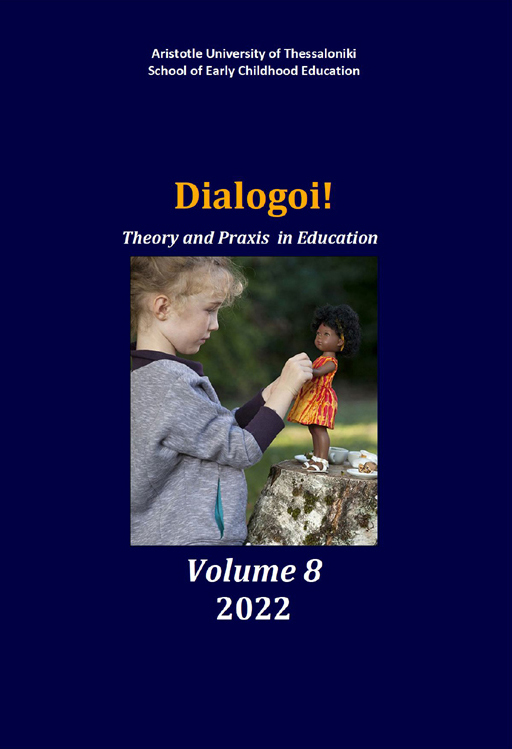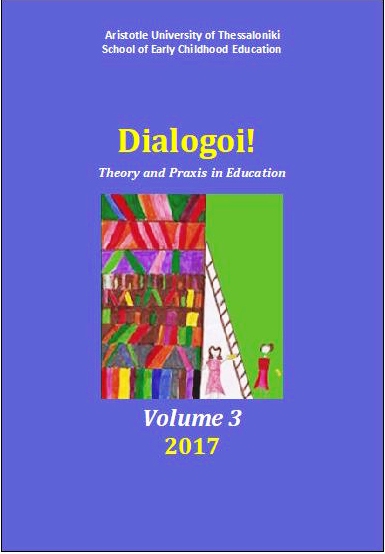Designing learning experiences in the kindergarten to support the development of the 21st century competences: Socio-pedagogical parameters related to the introduction of the English language in the kindergarten and the new Curriculum of preschool education

Abstract
Education for the 21st century is based on a set of competences that addresses holistic development and wellbeing of the person and takes into consideration the knowledge we have gained so far about how children learn and what is important to accomplish. The challenges of the global society and the complex and fluid circumstances of the everyday life have necessitated for the development of those skills, knowledge and attitudes that promote resilience, openness to challenges, positive learning behaviors, lifelong learning and respect to diversity, from the early years. The way these 21st century competences are organized in the new kindergarten curriculum set the stage for a new perspective in identity formation that regards global citizenship and promotes humanistic values, social justice and inclusion in line with the sociopedagocial orientation of the school. Competences such as communication, collaboration, creativity and innovation, information process, critical thinking and problem solving, seem to have great importance for successful living and should emerge from an early age through systematic educational interventions. Within this line of thought, the introduction of the English language in the preschool education could be used as a context and a tool to develop global citizenship, intercultural communication and multilingual awareness. Especially for children that have different language and cultural profiles, the introduction of second or foreign language could become a bridge to develop a sense of belonging and critical reflection on their diversity as an asset for their personal, interpersonal and social growth. Educational planning should take into consideration the way young children learn and the methodologies used in the kindergarten to organize educational activities, along with criteria used in different stages of the educational system that should be filtered and infused in educational experiences. The content of some basic 21st century competences is presented and discussed within a set of cross thematic activities that use the English language to help children become familiar with preschool education experiences from other countries and reflect on their situation as students with an aim to gain understanding about their place and potentials in the preschool education, from a global perspective.
Article Details
- How to Cite
-
Penderi, E. (2022). Designing learning experiences in the kindergarten to support the development of the 21st century competences: Socio-pedagogical parameters related to the introduction of the English language in the kindergarten and the new Curriculum of preschool education. Dialogoi! Theory and Praxis in Education, 8, 70–97. https://doi.org/10.12681/dial.28479 (Original work published February 18, 2022)
- Issue
- Vol. 8 (2022)
- Section
- Scientific columns

This work is licensed under a Creative Commons Attribution-NonCommercial-ShareAlike 4.0 International License.
Authors who publish with this journal agree to the following terms:
- Authors retain copyright and grant the journal right of first publication with the work simultaneously licensed under a Creative Commons Attribution Non-Commercial License that allows others to share the work with an acknowledgement of the work's authorship and initial publication in this journal.
- Authors are able to enter into separate, additional contractual arrangements for the non-exclusive distribution of the journal's published version of the work (e.g. post it to an institutional repository or publish it in a book), with an acknowledgement of its initial publication in this journal.
- Authors are permitted and encouraged to post their work online (preferably in institutional repositories or on their website) prior to and during the submission process, as it can lead to productive exchanges, as well as earlier and greater citation of published work (See The Effect of Open Access).



